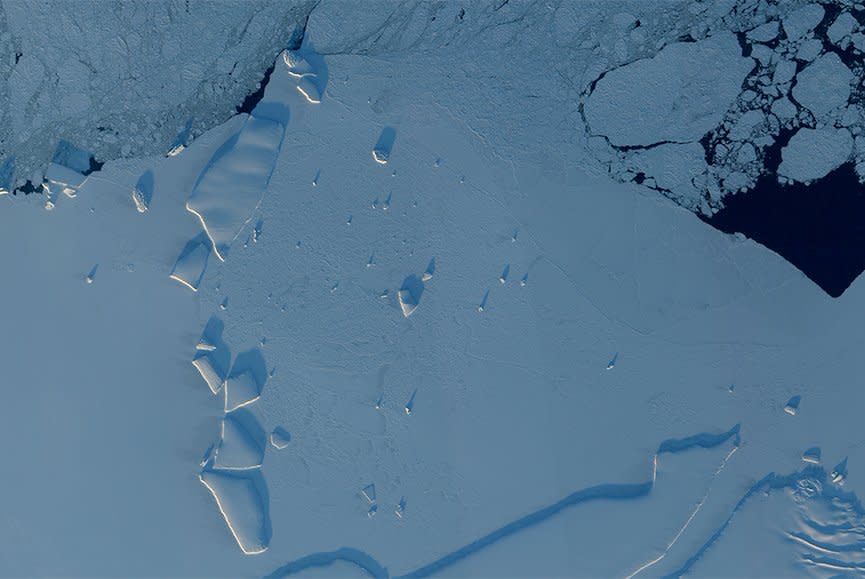Biden signs memorandum for new environmental protections in Antarctic

- Oops!Something went wrong.Please try again later.
May 17 (UPI) -- President Joe Biden on Friday signed a memorandum updating United States policy on the Antarctic region in an effort to protect it from the effects of climate change.
The national security memorandum replaces the 1994 policy on Arctic and Antarctic regions and establishes key objectives by which the United States will lead and participate in activities through the Antarctic Treaty System.
The new policy has four primary objectives:
Protect the "relatively unspoiled" Antarctic environment and related ecosystems
Preserve and pursue opportunities for scientific research and understand Antarctica's relationship to climate change
Maintain the Antarctic as a region of peaceful international cooperation
Ensure the protection of living resources and ecosystems in the region
"We remain vigilant against actions by countries that could threaten U.S. national interests by bringing international discord to the Antarctic region," the White House said in a statement.
"The United States, represented by the Department of State at ATS bodies, will work with international partners through the ATS to promote peace and science in the region, and promote international cooperation while safeguarding U.S. national interests."
The U.S. National Science Foundation manages three year-round Antarctic research facilities.
The foundation collaborates with other federal science agencies on research in aeronomy and astrophysics, ecology, atmospheric sciences, biology and medicine, geology and geophysics, glaciology, ocean and climate systems, and living marine resources.
Research conducted by the United States and other countries continues to demonstrate the damages of global climate change on the Antarctic region, including through ocean warming and acidification, ozone depletion, rising sea levels, and air and water pollution.
American research also has revealed the risks and uncertainties of climate "tipping points" such as the collapse of the West Antarctic ice sheet.
The United States said it will continue to encourage countries to set "ambitious" 2035 nationally determined contributions under the Paris Climate Agreement to limit global warming to 1.5 degrees Celsius and establish a system of protected marine areas in the Antarctic.
The updated policy builds on the Biden-Harris administration's commitment to modernize outdated climate and environmental policies, according to the White House.

